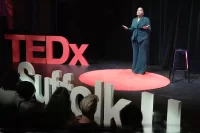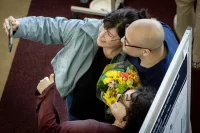
Bates Faculty in the News: April 25, 2025
A selection of recent mentions of Bates faculty in the news, from commentaries on the importance of rural education to growing discussions of AI in education and an analysis of how homelessness impairs people’s sense of autonomy.
Mara Tieken
Commentary: Rural school closures — punishment for crimes never committed — The Daily Yonder
In addition to her recent op-ed in the Portland Press Herald offering a stirring and evidence-driven defense of the Department of Education, Associate Professor of Education Mara Tieken recently published a commentary about rural school closures in The Daily Yonder, a national news outlet dedicated to reporting on rural people and places.
Tieken, who studies rural education and previously worked as a third grade teacher in rural Tennessee, explains how school closures and consolidations harm students and their communities.
“Every year, hundreds of thousands of children are displaced when their schools are permanently shuttered,” Tieken writes.
School districts often anticipate that closing schools with low attendance rates or low grades will save money and improve educational opportunities, Tieken explains, and many states have laws requiring districts to shutter schools with consistently poor academic performances.
However, Tieken says, research does not support notions that school closures mitigate financial hardships and improve grades. Conversely, closures often lead to academic and behavioral problems.
“Closure is not an answer to budget shortfalls, academic underperformance, or educational inequality,” Tieken writes. “There is no cheaper alternative; we cannot punish our way to excellence.”
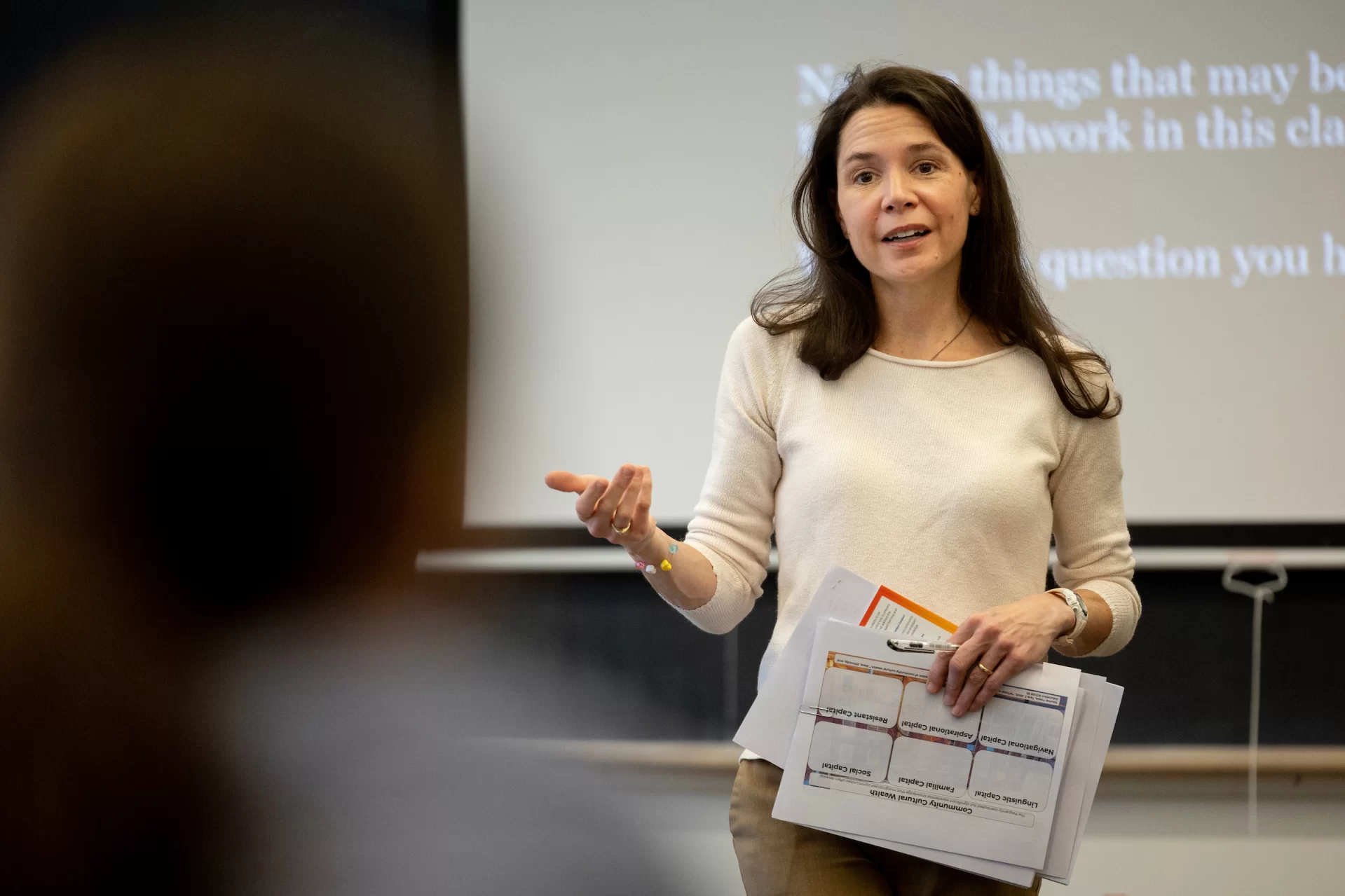
As a rural education scholar, Tieken regularly fields requests for support from rural schools facing closure and maintains a website, Rural Schools Open, which offers resources for understanding and combating school closure. She also regularly writes about rural education; Tieken’s second book, Educated Out, is set to release in May and profiles nine first-generation, rural students attending an elite private college Tieken calls “Hilltop.”
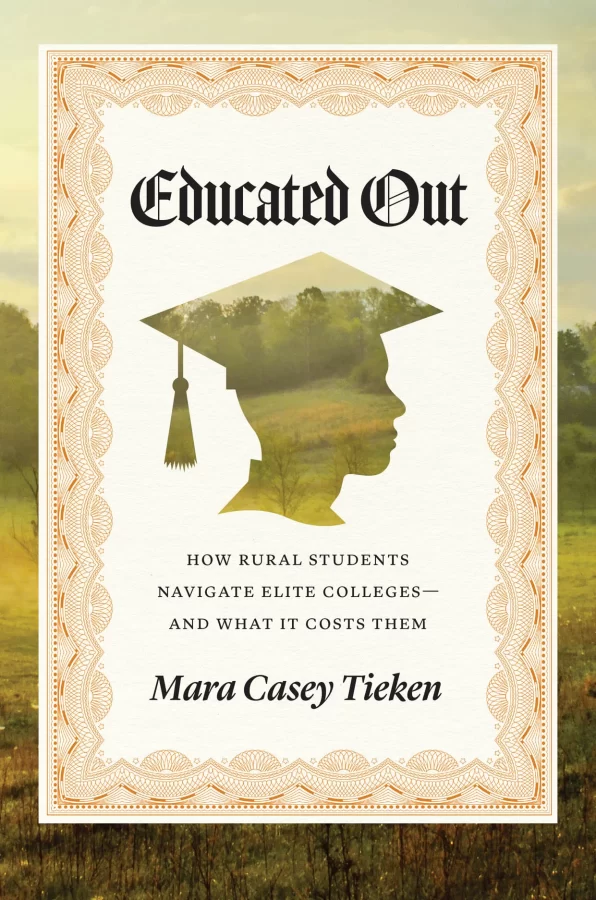
In the book, Tieken examines how the students’ rural and often low-income backgrounds affect their experiences at the school. Some of these students, for example, reported being unable to access certain opportunities, such as unpaid internships and expensive extracurriculars, due to their financial situations. Students also mentioned feeling judged for their rural backgrounds at Hilltop, while simultaneously feeling like they no longer fit in with their home communities.
“A lot of them felt kind of stuck in between: they don’t fully belong at Hilltop, they don’t fully belong at home,” Tieken says. “And for some of the students, it felt freeing. They got to make their own road, do their own thing. But I think it’s also really alienating and disorienting at times.”
Earlier this month, Tieken also shared her expertise in a Portland Press Herald op-ed about the impact that dismantling the Department of Education could have on Maine schools.
About 10 percent of Maine’s education funds come from the federal government and support some of the most critical statewide programs. In 2024, Maine received $62 million in federal funding for Title I education supporting low-income students and $66 million for special education support.
“Another important program is the department’s Rural Education Achievement Program,” Tieken writes. “REAP helps offset the unique budgetary challenges that come with providing education in sparsely populated, remote places, and it is critical in a state like Maine, where more than two-thirds of schools are rural.”
Additional federal funding supports Pell Grants for undergraduate students, vital research about public education, and early learning and adult education programs.
“All of this work is threatened right now. These programs and grants make for strong schools, useful research and prepared graduates,” Tieken writes. “They help produce teachers, doctors and business leaders and keep Maine on the cutting edge of educational and technological practice.”
Carrie Diaz Eaton
AI: privacy and security — Maine Calling on Maine Public
Associate Professor of Digital and Computational Studies Carrie Diaz Eaton was part of a rich discussion about AI on Maine Calling, Maine Public’s weekday radio program, earlier this month.
The other panelists were Michael Donihue, interim director at Colby’s Davis Institute for AI; Bowdoin’s Fernando Nascimento, assistant professor, digital and computational studies; and Berkeley Almand-Hunter, technical director of partner products at the Roux Institute.
Host Jennifer Rooks wanted to know how Diaz Eaton’s students at Bates relate (or don’t) to AI.
“What do 17-, 18-, 19-year-olds coming to Bates understand about AI and where are there gaps in knowledge that you’re really working on helping them to understand?” Rooks asked.
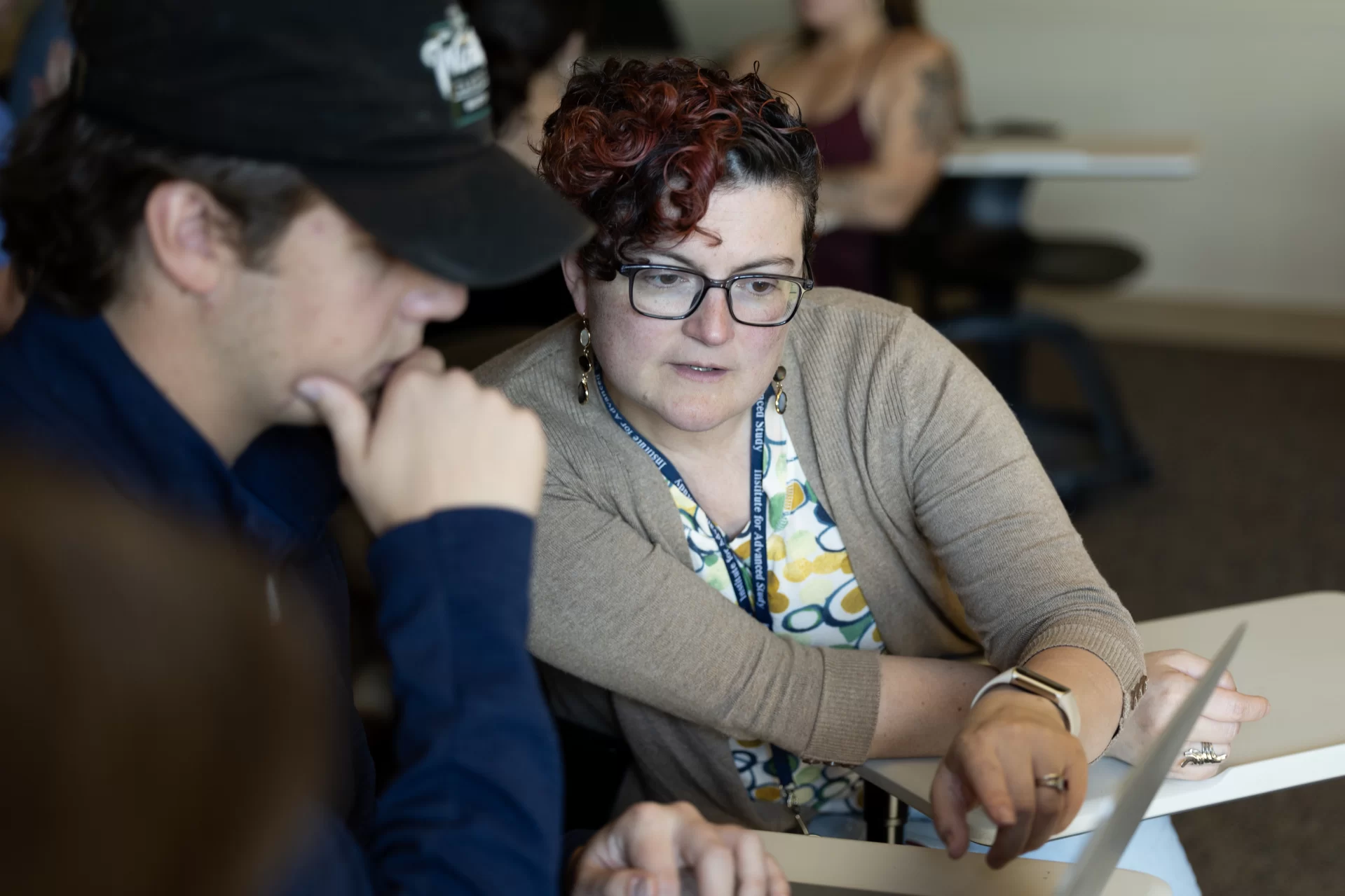
Diaz Eaton described three students she’s got working for her now, helping her develop a new module for incoming students, a sort of AI literacy course.
“And I have one that’s like, ‘I’m so excited about this. We got to teach everybody how to do a prompt and get this information really well and how to use it and to be valuable in the workplace,’” Diaz Eaton said.
“I have another student that’s like, ‘I really value my own thought process and what I bring to this as a human, and I just don’t feel comfortable using AI at all. I don’t trust it.’” Then there’s the student who is focused on the ins and outs of the technological aspect of it all.
“So I feel like I’m always in this microcosm of really diverse opinions and preparedness from students,” Diaz Eaton said.
She also told listeners about her course, “Calling Bull: Data Literacy and Information Science,” which she’ll be teaching in the Fall. It’s a course she teaches regularly, but in recent years, discussion of AI has become a more substantive portion of that course. “Because you’ve got misinformation being created at a scale, on purpose or not,” Diaz Eaton told the audience.
Paul Schofield
An autonomy worth having — Jacobin
For Jacobin, Associate Professor of Philosophy Paul Schofield, whose research focuses on moral and political philosophy, wrote about the current homelessness crisis and the idea of — and historical perspective on — involuntary hospitalization, which is once again being offered as a solution in some quarters after being roundly rejected by both the left and the right 40 years ago.
Schofield describes the political alignments for and against it and then advocates for what he calls a “deeper autonomy, a kind of autonomy worth having,” outlining a new middle ground.
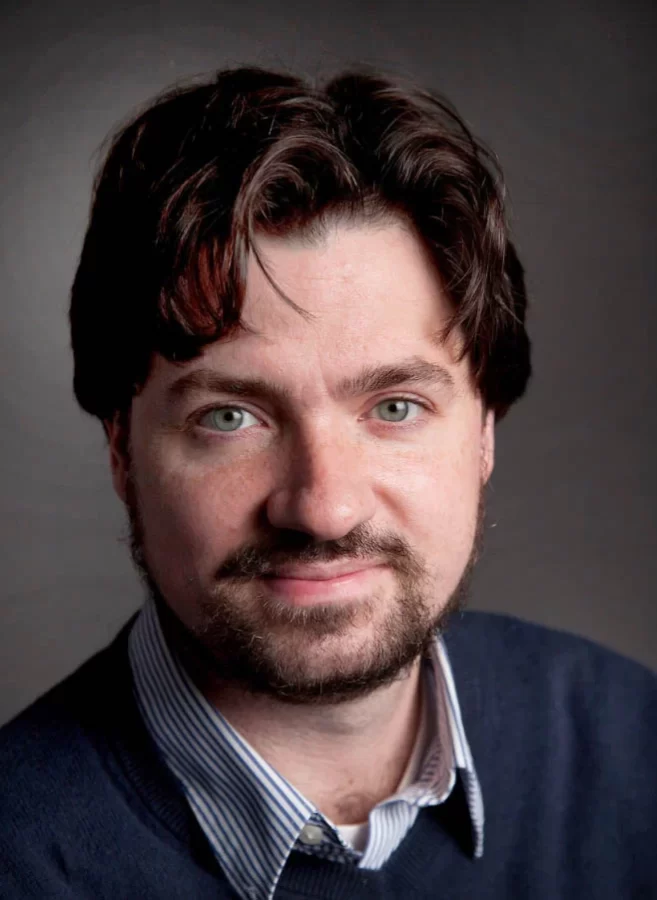
He uses the case of a homeless woman named Joyce Brown who was forcibly hospitalized in 1987 by the city of New York and successfully challenged the city’s right to detain her with the help of the New York Civil Liberties Union to demonstrate how involuntary hospitalization is not a solution.
Schofield then also examines two cases of homeless women in the Northwest, one who froze to death and another who gave birth on the street to a baby who quickly died of hypothermia, to illustrate how autonomy is more complex than people on either end of the political spectrum might admit.
“These are cases in which people are straightforwardly prevented by their sickness and circumstances from being able to weigh values, to fully understand the implications of their actions, and to act in ways that accord with what they care about.
“In other words, they are cases in which their mental illness and material circumstances undermine their autonomy. Leaving them alone might be a way to respect bare-bones libertarian freedom. But if it’s meaningful autonomy we care about, it’s entirely insufficient.”
This area of moral philosophy is one Schofield has been examining to great success. He was recently honored by the American Philosophical Association for an op-ed he published in The Conversation about how “homelessness compromises a person’s freedom.” He was one of five winners of the association’s Public Philosophy Op-Ed Contest, which recognizes standout pieces that “successfully blend philosophical argumentation with an op-ed writing style.”
